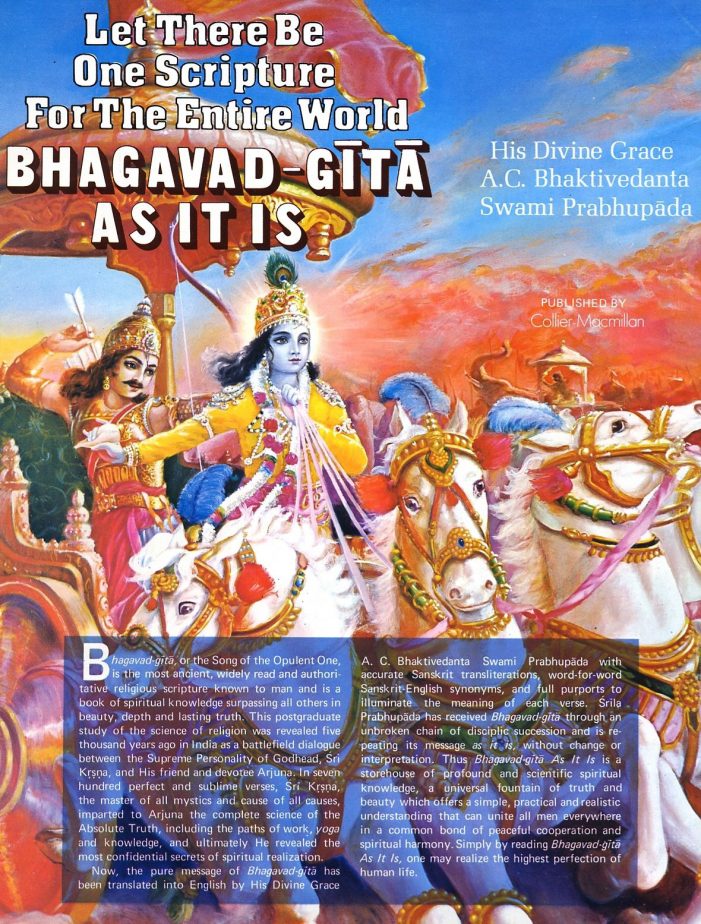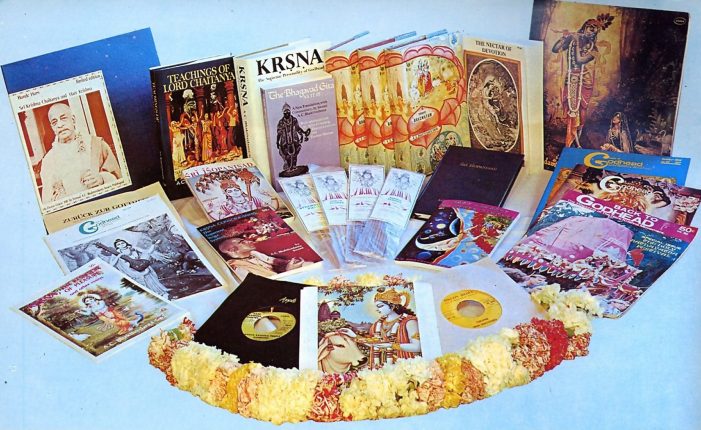One Scripture For The Entire World

Bhagavad-gita, or the Song of the God, is the most ancient, widely read and authoritative religious scripture known to man and is a book of spiritual knowledge surpassing all others in beauty, depth and lasting truth.


